Search Definitions
Browse Content (p. 252)
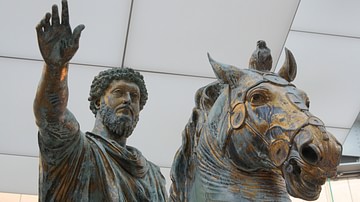
Definition
Roman Sculpture
Roman sculpture blended the idealised perfection of Classical Greek sculpture with a greater aspiration for realism. It also absorbed artistic preferences and styles from the East to create images in stone and bronze which rank among the...
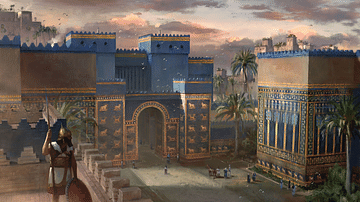
Definition
Ishtar Gate
The Ishtar Gate was constructed by the Babylonian King Nebuchadnezzar II circa 575 BCE. It was the eighth gate of the city of Babylon (in present-day Iraq) and was the main entrance into the city. The Ishtar Gate was part of Nebuchadnezzar's...
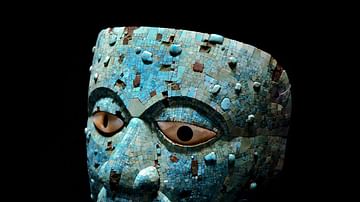
Definition
Xiuhtecuhtli - The Aztec God of Fire
Xiuhtecuhtli or 'Turquoise Lord' was the Aztec god of fire and also closely associated with young warriors and rulers. To the Maya he was known as Chac Xiutei. Xiuhtecuhtli was the patron of the day Atl (water) and the trecena period 1 Coatl...
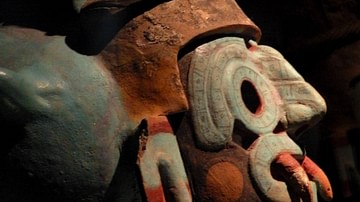
Definition
Tlaloc
Tláloc (pron. Tla-loc) is one of the most important and formidable gods in the Aztec pantheon. He was considered the god of rain, water, lightning and agriculture. Tlaloc was seen as both a benevolent god providing life-giving rain but also...
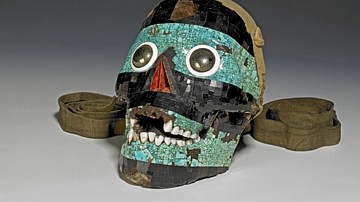
Definition
Tezcatlipoca - The Greatest of Aztec Gods
Tezcatlipoca (pron. Tez-ca-tli-po-ca) or 'Smoking Mirror' in Nahuatl was one of the most important gods in Postclassical Mesoamerican culture and particularly important for the Toltecs and the Aztecs, especially at Texcoco. He was an invisible...
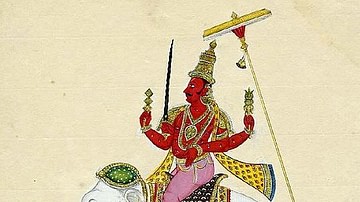
Definition
Indra - The Vedic Religion's Greatest God
The anthropomorphic god Indra was the most important god in the Vedic religion and he later became a major figure in Hinduism and an important deity in Buddhism, Cham and Chinese tradition. For the Aryas he was their national god and he was...
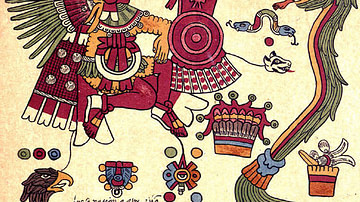
Definition
Xipe Totec
Xipe Totec (pron. Xi-pe To-tec) or 'Flayed One' in Nahuatl, was a major god in ancient Mesoamerican culture and particularly important for the Toltecs and Aztecs. He was considered the god of spring, the patron god of seeds and planting...
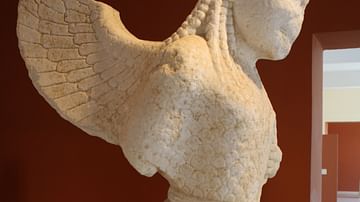
Definition
Paros
Paros is an island in the Cyclades group in the central Aegean. It is the third largest island of the Cyclades and its position on important sea routes between mainland Greece and the coast of Asia Minor made it an important centre from the...

Definition
Quetzalcóatl
Quetzalcóatl (pron. Quet-zal-co-at) or 'Plumed Serpent' was one of the most important gods in ancient Mesoamerica. Quetzalcóatl was the god of winds and rain, and the creator of the world and humanity. A mix of bird and rattlesnake, his name...
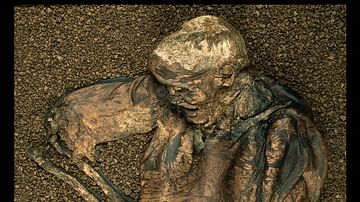
Definition
Lindow Man
The Lindow Man (officially Lindow III) is the top half of a male body, found preserved in a peat bog in Cheshire, England. The peat bogs at Lindow Moss date back to the last ice age and were formed by holes of melting ice; they are now a...